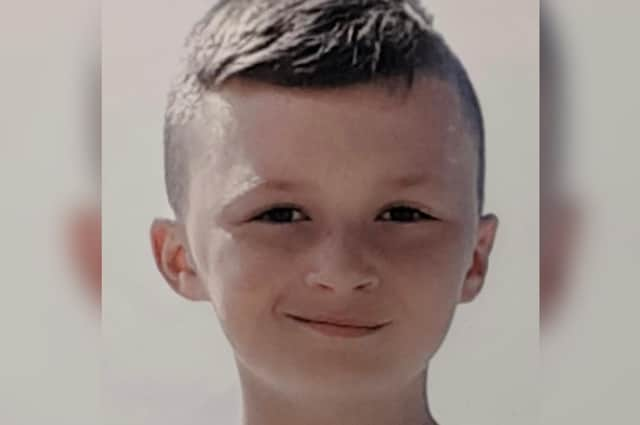Coroner sets out five areas of concern over tragic Alfie Stone death in Kettering


A corner has published her report aimed at helping to prevent future incidents following the tragic death of Alfie Stone.
Alfie was just 12 when he suffered a seizure at home in December 2019, three months after his epilepsy medication had been stopped.
Advertisement
Hide AdAdvertisement
Hide AdAlthough the Latimer Arts College pupil had had epilepsy since he was 18-months old, the court was told that he had not had a seizure for more than three years before the fatal fit that ended in his death.
Paramedics who treated Alfie had not been trained in how to use anti-epileptic drugs and did not administer oxygen for more than quarter of an hour because of the boy's movements during his seizures.
Following the inquest, his parents told this newspaper that the family's life had been 'torn apart' by the death of their 'caring, kind and considerate' boy, and that they would now fight to ensure no other family has to go through the same experience
Last month, Assistant Coroner for Northamptonshire Jean Harkin recorded a narrative verdict following a two-day inquest which uncovered a series of concerns over the way in which East Midlands Ambulance Service responded to the incident.
Advertisement
Hide AdAdvertisement
Hide AdShe found that two years on from Alfie's death, paramedics have still not been given training on how to use vital medicine that could potentially save the lives of epileptic children.
Now she has made public a Regulation 28 Prevention of Future Deaths report that could help the authorities learn lessons and ensure no other child dies in the same way that Alfie did.
The report states: "Evidence was heard at the inquest that paramedics were unable to deliver oxygen to Alfie for more than 15 minutes due to their concern that continuous fitting movements made it difficult for them to do so.
"In addition, the paramedics were not trained in the use of buccal midazolam, an anti-epileptic drug that can be given into the skin between teeth and cheek (side of mouth), onto the gums.
Advertisement
Hide AdAdvertisement
Hide Ad"Evidence was heard from a consultant that this method should be used by paramedics when it is difficult to administer rectal or IV medication due to continuous fitting movements and that this medication could be more effective in the early stages of fitting as it is a more effective medication than diazepam.
"The pathologist gave evidence stating that interruption of oxygen supply for more than five minutes was sufficient to cause a global hypoxia. He also found evidence at post-mortem examination of aspiration (evidence of food contents in the lung). A paramedic confirmed that had he known this then he would have performed suction to prevent aspiration."
Ms Harkin outlined five key areas of concern that she believes should be addressed by EMAS.
They are;
1) The apparent lack of training of paramedics in the use of buccal midazolam
Advertisement
Hide AdAdvertisement
Hide Ad2) That no other form of oxygenation was attempted, such as bagging or being taken earlier to the ambulance to secure and deliver oxygen
3) No suction was attempted and the question was not asked of Alfie's parents as to whether he had vomited
4) There was no evidence of training to the paramedics who attended and gave evidence following an independent Serious Incident Report (SIR) and its agreed recommendations
5) East Midlands Ambulance Service not accepting the recommendation three within the SIR to carry and administer buccal midazolam when necessary.
Advertisement
Hide AdAdvertisement
Hide AdThe report compels EMAS and the Local Safeguarding Board to take further action to prevent future deaths and to respond to the coroner before the end of February setting out a timetable for steps they now intend to take.
Following the conclusion of the inquest, Nichola Bramhall, Director of Quality Improvement and Patient Safety at East Midlands Ambulance Service said: “Our thoughts and sincere condolences go to Alfie’s family, all of who we understand have faced a very difficult time.
“We take matters of patient safety very seriously, particularly matters arising from coroners’ inquests where lessons can be learned.
“At this moment in time, we need to review the prevention of future death order and consider its contents to identify areas of learning so that we can respond to the Coroner’s findings and conclusions.”
You can read our coverage of the case in three stories here: